After reading her first environmental thriller, a harrowing tale called Freezing Point that takes place in Antarctica, David Morrell declared, “Karen Dionne is the new Michael Crichton.” Unlike Crichton, though, she came to a writing career not by way of science or medical training but through a personal attachment to the environment.
A Detroit native, Karen dropped out of the University of Michigan in the 1970s and moved to Michigan’s Upper Peninsula wilderness with her husband and infant daughter as part of the back-to-the-land movement. For the next thirty years she expressed her creative side by making stained glass, weaving, and constructing N-scale model train layouts. Eventually she returned to writing, an interest in her teens, and sold short stories to a number of magazines. She worked as Senior Fiction Editor for NFG, a print literary journal, before founding Backspace, an Internet-based writers organization with over 900 members in a dozen countries. Karen and her husband now live in Detroit’s northern suburbs.
Freezing Point was published in September, 2008. Karen’s second book, Boiling Point, is scheduled for publication in 2010.
Q. You’ll be going from cold to hot with your second novel, Boiling Point. Will some of the characters from Freezing Point return?
A. I’m very excited to have the opportunity to write another environmental thriller for Berkley. Boiling Point is about an erupting volcano, a missing researcher, and a radical scheme to end global warming. It’s both a stand-alone and a follow-up book, since it brings back two of Freezing Point’s secondary characters and gives them a more major role. Both were deeply affected by the calamitous events that took place in Freezing Point, and because of that, the new story spins off into an entirely new direction. I think Freezing Point’s readers will enjoy the new book, but those who haven’t read Freezing Point should too, since the problems Boiling Point explores regarding what should be done about global warming are both current and universal.
Q. Science thrillers are usually male territory. When you were marketing Freezing Point, was there any resistance from editors because you’re a woman? Did you feel comfortable in the thriller community from the beginning?
A. I can honestly say I’ve never felt any bias from the thriller community because of my gender. I did wonder before I sold my first novel if my future publisher might suggest I publish under a different name in order to disguise the fact that I’m a woman. But the subject never came up. And now that I’m published, as far as I can tell, my readers seem to be evenly split between men and women.
Q. You’re not a scientist and don’t have an education in any scientific field. Why did you choose to write about science and the moral dilemmas of scientists?
A. I think all writers are drawn to the subjects that interest them most. I’ve always loved science, particularly anything to do with the natural world. I ended up choosing a different career path than pursuing a university degree, so now, I get my science fix by writing thrillers with a scientific bent. Not only do I get to learn more about the subjects that fascinate me, I can people my novels with engineers and experts and every sort of -ologist and live vicariously through them.
Q. Do you have advisors who help you make sure the science is accurate and your scenarios are plausible? How did you find them? What advice would you give to unpublished writers who may be hesitant to approach experts for help?
All of the experts I’ve talked to have been accessible and eager to help, and I know I’m not alone in my experience. I think the best way to approach experts is to begin with a brief email and a few questions, and after that, if the expert is inclined and has the time, you can ask more. And don’t forget to keep good records of who you’ve talked to so you can thank them later in your acknowledgments!
Q. Not only is Freezing Point an exciting, suspenseful story (with one of the most nerve-wracking openings I’ve ever read), it’s also beautifully written. Would you say that your style came naturally and easily, or have you worked to refine it? What authors, if any, have influenced your writing style?
A. Thanks so much for the kind words. My writing style did not come easily to me, and it was probably a good year before I stumbled into it. I’ve always been a voracious reader, but when I first began writing, I made the common new-writer mistake of trying to sound “writerly” rather than letting my personality come through. Now, my writing style comes naturally to me, because it is me -- a slightly wry, slightly snarky, slightly self-deprecating tone that’s very similar to my everyday conversation. I also love puns and word play, and can’t resist sneaking a little of that into my characters’ observations. Now when I find myself struggling with a sentence or a scene and the words just won’t flow, I know it’s because I need to stop trying so hard, and just have fun.
That said, I do spend a lot of time crafting individual sentences. I care very much about the musicality of my work -- whether the rhythm of a sentence requires a one- or two-syllable adjective; whether a sentence ends on a hard or soft note. I have a classical music background, and this is probably why very often, before I even know what I’m going to say, I hear the rhythms of the sentences in my head.
Q. You have said that you didn’t grow up wanting to be a writer, that you never had a “passion to write” or felt it was something you had to do. How did you end up becoming a writer? And now that you’ve sold two books, have you developed a passion for it? Do you feel more of a compulsion to go on writing now?
A. I won writing awards when I was in high school, but it wasn’t until ten years ago when I was encouraging my son to enter the same contests I had that I started thinking, “What about me? I used to be a pretty good writer.” I had an idea for a novel that had been kicking around for some time, so I sat down to write it. Ultimately, that book didn’t sell, but it did get me my wonderful agent.
After having come so close and learning so much from my first attempt, I couldn’t imagine not trying again. Even though it’s been a year since Freezing Point was published, I still feel tremendously lucky that it found a home. Writing fiction is now such a big part of my life, I can’t imagine not doing it.
Q. What aspect of craft gives you the most pleasure and satisfaction? Which has been most difficult for you to master?
A. I love those moments when everything clicks; when I’ve found the perfect words to express exactly what I want to say, whether I had to dig them out of my subconscious, or they popped into my head on their own. I also love the process of taking imaginary characters and making them real.
The most difficult aspect of novel writing for me is tension and pace. There’s a real art to knowing how much to reveal and when, and that’s something I’m constantly working on.
Q. You’ve described your writing process as “excruciatingly” slow. How long does it take you to write a book? How much of what you write do you discard before you’re finished? Do you think you’ll ever be a book-a-year author?
A. I’ve always considered myself a slow writer, though I wrote Freezing Point in about a year, which really isn’t all that long. Boiling Point sold on spec, and my publisher has given me a year to finish that novel as well.
I think it’s not so much the length of time it takes me to write a novel that makes it seem slow as it is the process. I’m cursed with one of those ruthless internal editors, so I tend to obsess over every sentence, paragraph, and scene far too many times before I’m satisfied and can move on. But now that I’m writing to a deadline, I’m learning to pick up the pace. It’s not that the words aren’t there, or that I lack ideas, it’s a matter of discipline.
Q. How much of your time do you spend on research and consultation with experts, and how much on writing?
A. I know authors who spend months researching their novels before they begin writing. I’m not that way. I think it’s because I have a short attention span, and also because at heart, I’m lazy. I do just enough research at the outset to get a sense for where the story’s going, and then I dive in, augmenting the writing with more research on a “need to know” basis.
Q. Do you read other people’s crime novels while you’re working on your own? Who are some current authors whose work impresses you?
A. I read 3 or 4 thrillers a week, whether I’m writing or not. I think once an author is secure in their own writing style, they can read others’ work without the risk of being unduly influenced. I love getting caught up in another author’s story -- it’s a chance to get out of my own head for a while and experience something new. Occasionally, my analytical side comes to the fore, and I catch myself wondering about the mechanics of how the author has managed to engage me so thoroughly, but for the most part, I’m reading for pleasure. Some of my favorite authors are Sean Chercover, Marcus Sakey, Tom Rob Smith, Sebasian Fitzek, Tana French, Laura Lippman, Jeffery Deaver, Douglas Preston & Lincoln Child, Barry Eisler, Dennis Lehane, Harlan Coban, David Baldacci, Brad Meltzer, Lee Child, and Joseph Finder. I also read several Booker or Pulitzer Prize winners each year. I loved Elizabeth Strout’s Olive Kitteridge.
Q. You had a unique launch party for Freezing Point – an online party. For those who didn’t have a chance to see what you did, would you describe the way it worked? Did you set up a web site for it? What kinds of content did you display? Does the “party” still exist in cyberspace so we can take a look? Do you plan to do the same for your second book?
A. I got the idea for an online book launch when I realized that no matter where I held a real-world party, only a few of my friends would be able to come. So I set up a special website (www.freezingpointlaunchparty.com) and with help from a dozen thriller authors, I threw an online book launch where family, friends, and fans could mingle and win prizes – and catch the buzz about my novel in the process.
Entertainment included video welcomes from my agent and from the bestselling thriller authors who had given me blurbs, a reading by a professional voice actress who’s also a New York Times author, a compilation clip with four authors who write series characters answering the question “Would Your Character Read Freezing Point?” and a clip from a thriller author who’s also a medical doctor discussing the science behind my story’s premise. Naturally, there were door prizes and a guest book, and two independent booksellers made signed copies available for purchase.
The video endorsements from best-selling thriller authors turned out to be an unexpected bonus. When I asked the folks who’d given me blurbs to record a video or audio contribution for my party website, I was thinking strictly in terms of entertainment. What I didn’t realize until I saw the first video clip was how powerful these would be. Seeing and hearing Douglas Preston tell readers how much he enjoyed my novel and that he looks forward to seeing it on the New York Times list is the Internet equivalent of a 45-second television commercial. As one visitor wrote: “Swanky party! What a great concept. And with all these top names shilling for you who can resist? I'm picking up my copy today.” I can easily imagine authors putting similar audio and video endorsements on their regular websites. They’re certainly easier and cheaper to produce than a book trailer, and quite possibly, more effective.
All in all, the party was a great success. In three days, the website saw 2,700 visitors, and over 400 people posted comments in the guest book. I’m not sure if I’ll hold another online launch for Boiling Point, or if I’ll try something new. At this point, I still have a year to figure it out!
Q. You co-founded the writers’ site Backspace before you published a novel, didn’t you? How did you go about recruiting members? How does it differ from the online discussion groups offered by Sisters in Crime, MWA, and ITW?
A. Backspace began five years ago with a core group of highly motivated and talented writers who were serious about learning all they could about the business and helping one another succeed. Since that time, 47 of the original 110 members have been published — most by major publishers, several more than once, and six are now New York Times bestselling authors.
We’ve actually never gone out looking for members -- on the Internet, if you have something of value, the word spreads all on its own. From the beginning, the high quality of the discussions attracted other like-minded writers, and from there, the ball just kept on rolling. Backspace currently has over 1,100 members who write in all genres, and are at all stages of their careers. The common theme in all of our activities is “writers helping writers,” which we accomplish by means of the discussion forums, our main website (www.bksp.org) and the conferences we hold in New York City every year. (www.backspacewritersconference.com)
Writer’s Digest Magazine recently featured Backspace in their October issue, so folks who are interested in learning more can pick up a copy, or read the extended interview at Writer’s Digest’s website.
Q. How is your personal life different now that you’re a published, and successful, author? Do your family, friends, and neighbors treat you any differently?
A. My family and friends are terrific. I don’t think they treat me any differently now that I’m published than they did before, which is as it should be if you think about it, since career success shouldn’t change who a person is. That said, I’m definitely busier! In addition to my writing and my work with Backspace, I’m also deeply involved with the International Thriller Writers organization. Last year, I served as the ITW Debut Authors Committee chair, and I’m currently assisting the ITW website manager. Both of these activities take a big chunk out of my writing time, but I’ve been helped so much by others on the road to publication, I get a great deal of satisfaction from paying it forward.
Q. What advice do you have for aspiring writers who are still struggling to break into print?
A. There are three things an aspiring writer needs to get published: talent, patience, and perseverance. A writer might have talent, but lack the patience to learn both the business and the craft and reach the level they need to succeed. Getting published can be a long and frustrating process, and sometimes authors who might otherwise have made it get discouraged and give up. But if you have talent, and you’re willing to learn, and you hang onto your writing goals for however long it takes to achieve them, odds are good that eventually, you’ll break in.




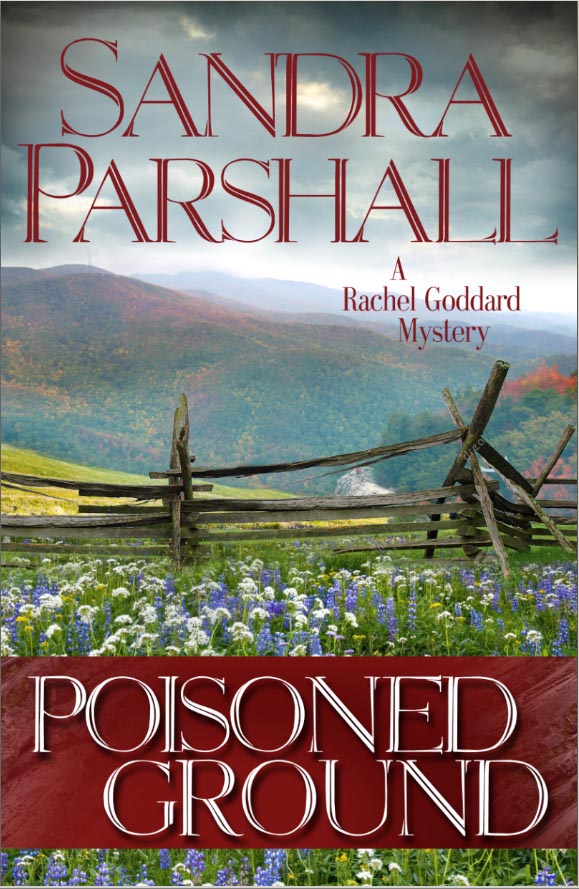
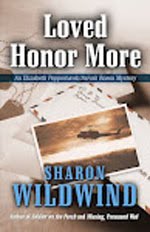
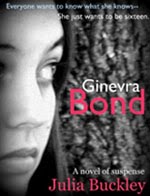
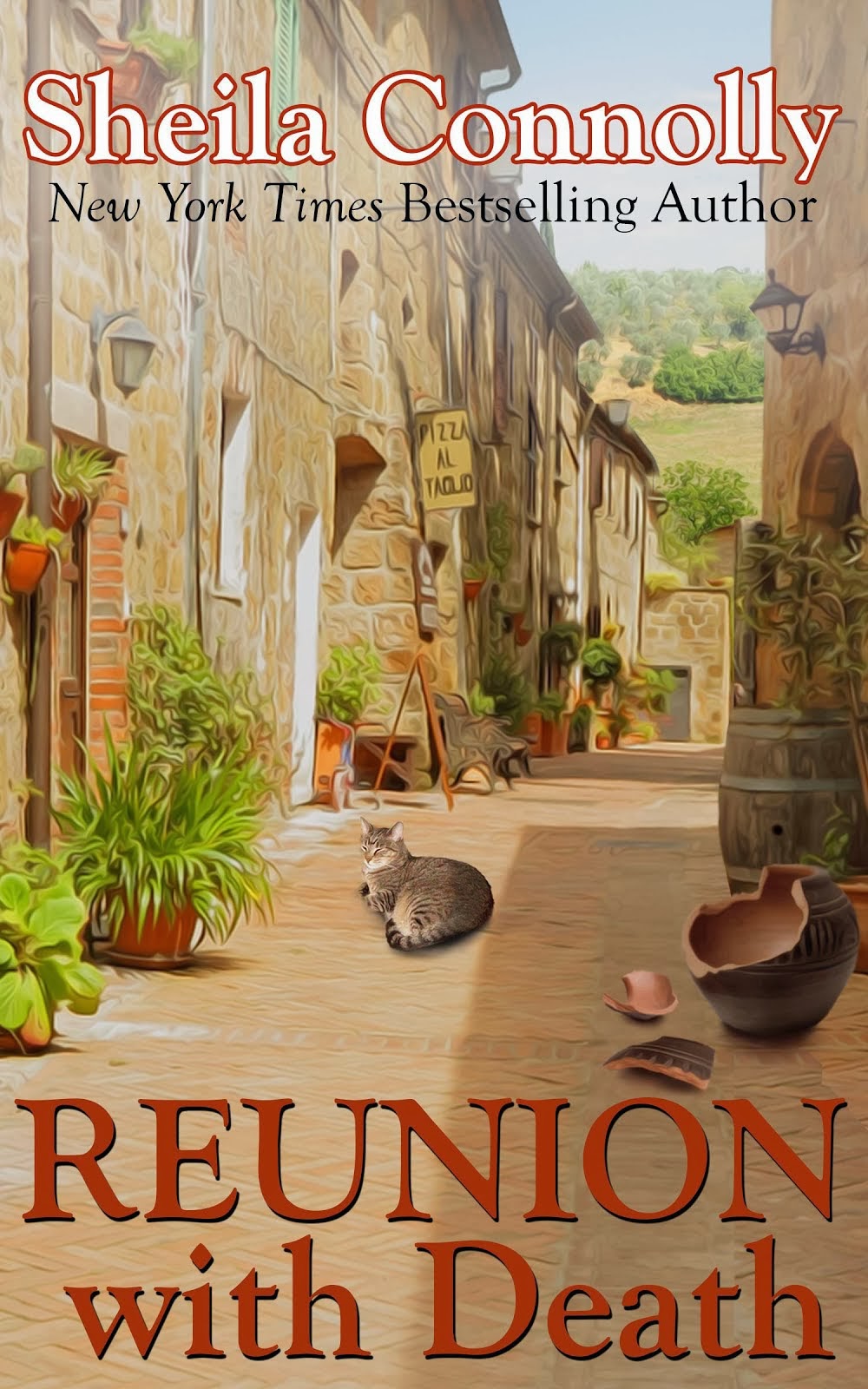
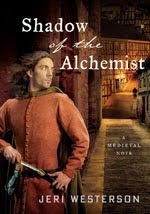

756 comments:
«Oldest ‹Older 801 – 756 of 756Post a Comment